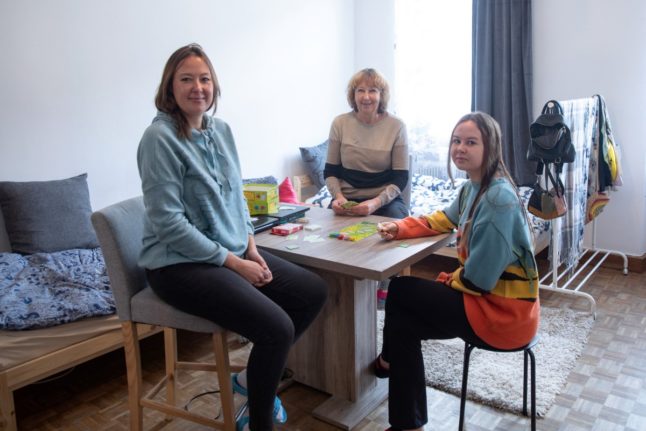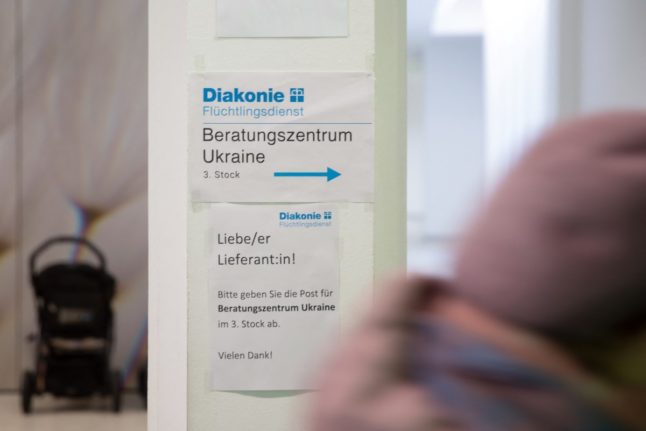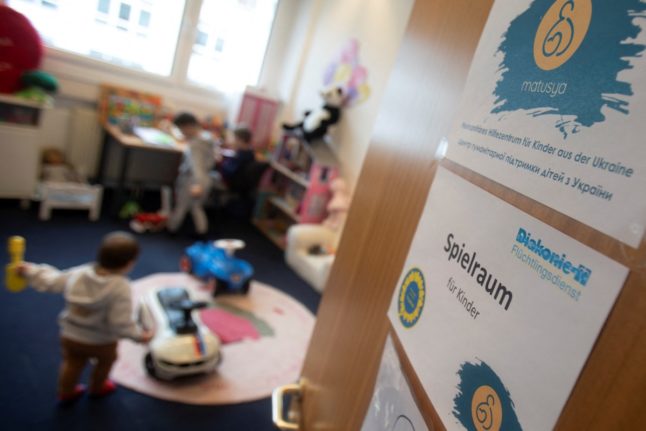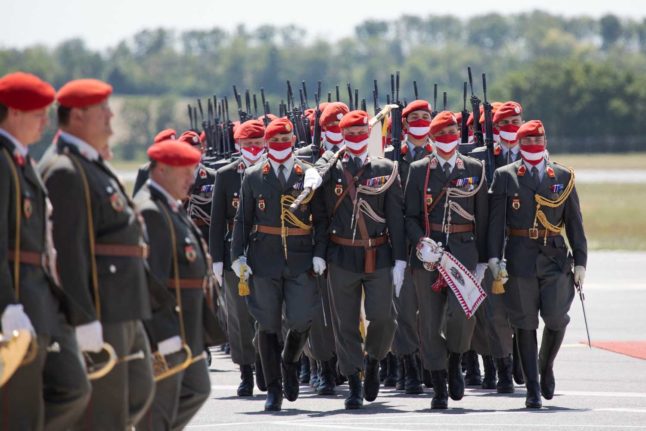But two years later, these hopes are fading.
Just a few days ago, a fresh attack blew off the roofs of many buildings intheir home city of Mykolaiv. “Ukraine’s future is not clear. I think that the war will not stop, even in one or two years,” said Maryna Troshchenko, 43, while showing photos of the damage sent by relatives still living in the port city.
Troshchenko, her mother and her daughter, who all now live in Vienna, are among six million Ukrainian refugees, marking the biggest exodus since World War II, according to the UN High Commissioner for Refugees (UNHCR).
Germany and Poland host the largest populations, with about one million Ukrainian refugees in each country.
Incessant bombings and a lack of progress on the front make their return in the short term increasingly improbable.
‘Started from scratch’
After months of housing problems and rejected CVs, Troshchenko finally landed a job in a supermarket, enabling the trio to move into their own apartment this year.
“I started from scratch” at the bakery department before being promoted to head cashier, said the former purchasing director, who did not speak a word of German when she arrived. “We are happy to have been able to accomplish so much in two years,” the divorcee added.
Her daughter, Katya, 17, has managed to obtain her Ukrainian school graduation certificate while attending a Viennese high school, from where she is eyeing to graduate next year.

Katya’s grandmother, Iryna Simonova, 64, meanwhile, has been able to find a volleyball team to practice her favourite sport and has made friends. But tears stream from her eyes as soon as she thinks of her home country as she recalls leaving behind her mother, who at 87 refused to join them.
‘Build a future’
At refugee help organisation Diakonie in Austria, workers note that many Ukrainian refugees have decided to try to settle after being paralysed by the “dilemma of waiting” to return home.
“For a long time, it was very difficult for them to decide how to proceed further,” Sarah Brandstetter, deputy at Diakonie’s Ukrainian refugee advice centre, told AFP.
“Two years later, the situation has changed — people are now planning to stay in the country. They have their children here in schools. They want to build a future for themselves,” she added.
But especially mothers of young children who find themselves alone to take care of them continue to struggle.
The initial surge of solidarity is also running out of steam in some places.
In Austria — which hosts some 80,000 Ukrainian refugees — “the increase of energy costs and high inflation was a game changer”, according to Christoph Riedl, a migration and integration expert at Diakonie.
In neighbouring Germany, anti-migration discourse is also on the rise amid a spike in the number of asylum-seekers from outside of Europe, weighing heavily on reception capacities.
Demographic challenge
Until March 2025, under EU rules, Ukrainians are eligible for temporary protection, a status allowing them access to the labour market, housing, and social and medical assistance. But what is next, experts wonder. Riedl said the EU should agree now on a
lasting status.
“When a conflict lasts for two or three years, people change their minds. It’s a reality check. They integrate, they have a new life,” he told AFP.
Faced with a real demographic challenge, Ukrainian authorities fear the massive exodus — and in contrast to other nations want refugees to be able to return.

“We find a somewhat specific situation in Ukraine — a country at war, which also wants to maintain the greatest possible connection with its population,” Philippe Leclerc, UNHCR Director for Europe, told AFP.
Katya Troshchenko too insists on the importance “for young Ukrainians to come back to rebuild Ukraine, to build a new, modern country, which will be in EU too”.
However — still traumatised by the nights in air raid shelters at the start of the war — she is “afraid” to return.
“I don’t want to see how it’s absolutely ruined by Russians, and I don’t want to see my ruined childhood,” she said. And she has no illusions — she will probably have to stay in Vienna for her university studies.



 Please whitelist us to continue reading.
Please whitelist us to continue reading.
Member comments